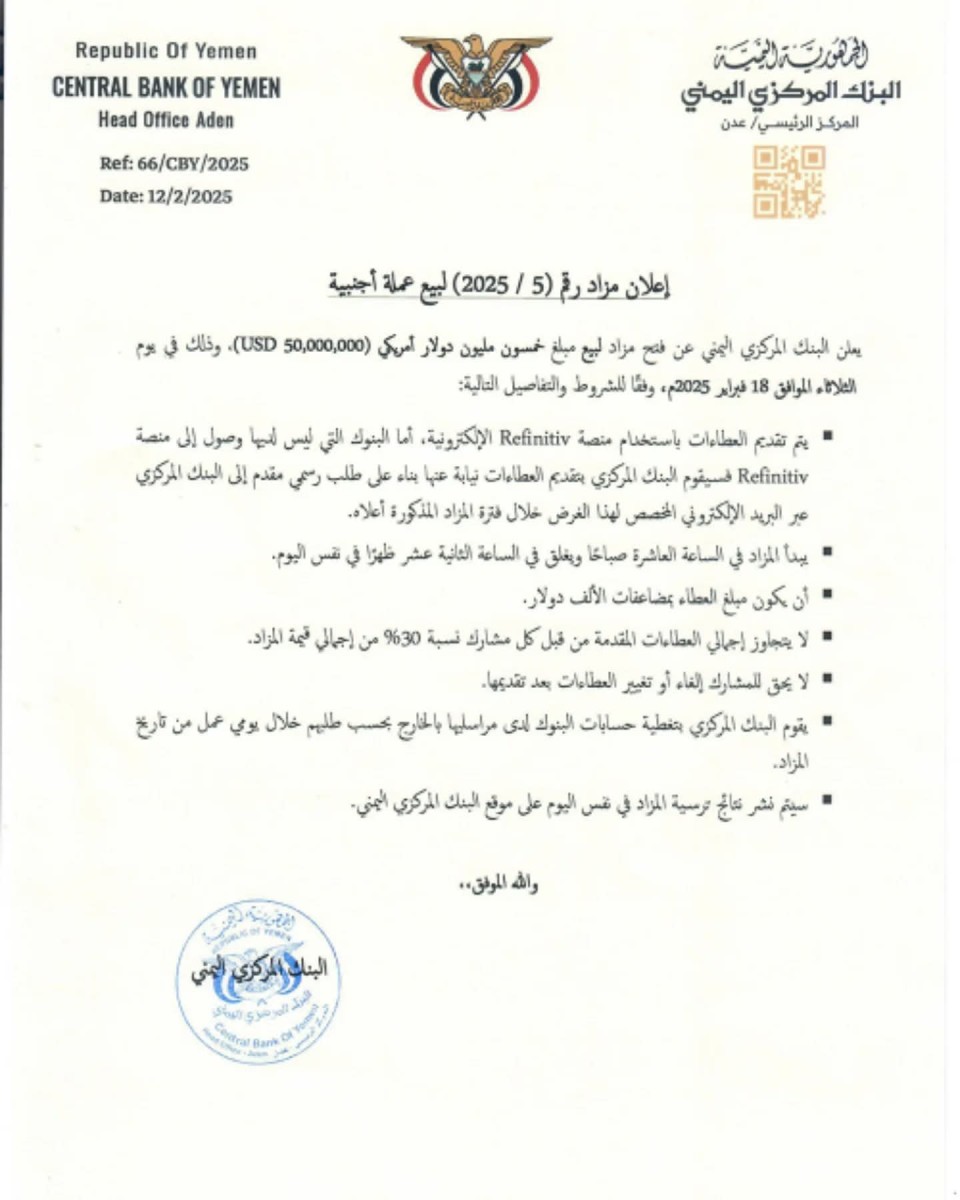The central bank in Aden announces a new auction to sell 50 million dollars, amid the deterioration of the value of the Yemeni riyal


The Central Bank in the capital, Aden, announced this evening, the launch of a fifth public auction since the beginning of this year to sell $ 50 million, in a new attempt to "absorb local liquidity" and "curb the continuous collapse of the Yemeni currency." >
However, economic experts described these auctions as a "temporary restoration" that feeds "influential" pockets without real stability, amid fears of the exacerbation of the living crisis.
The announcement of the new auction came at a time when the Yemeni riyal continues its historical decline against foreign currencies, where the US dollar exchange rate in the parallel market recorded 2,235 Yemeni riyals, while the Saudi riyal reached 610 Yemeni riyals, according to Aden ATMs.
Economists said, "Auctions are managed by non -transparent mechanisms, and limited groups of merchants and influential people benefit from them, while the real private sector is deprived of reaching the supported currency."
They added: "The market is dumping in dollars without controls that increases random import, and deepens inflation instead of solving."
For its part, banking sources revealed that a large percentage of the dollar sold in auctions "is transferred externally through informal channels," which loses the foreign currency its impact required in supporting the local economy.
In the Adeni Street, citizens expressed their dissatisfaction with the deterioration of the purchasing power, as they said: “Our salaries are no longer sufficient to buy the basic needs after the dollar price exceeded 2000 riyals.”
The current numbers are vowed to the worst scenario of the Yemeni economy, especially with almost the suspension of oil revenues, and the absence of political solutions that end the war, and economists warn that "the accelerating collapse of Real may explode an unprecedented humanitarian crisis, even if the monthly auctions continue."